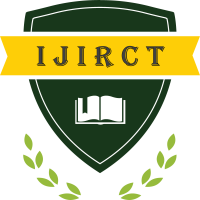Recovery and Re-use of Reactive Dyes from Textile Effluents for Colouration of Jute Substrate - An Environmental-Friendly Approach
Author(s): Dr. Bipin J. Agrawal
Publication #: IJIRCT1201033
Date of Publication: 08.09.2015
Country: India
Pages: 147-153
Published In: Volume 1 Issue 2 September-2015
Abstract
In today’s world, the availability of fresh water is one of the many environmental challenges on the universal horizon, which has arisen due to water scarcity, increasing population and water pollution. Therefore, it is important that water is used efficiently. As the cost of water increases, legislation becomes more stringent and enforcement stricter; the recycling of used water becomes a very viable option. The textiles chemical wet processing industry is also one of the biggest consumers of water, with conventional de-sizing, scouring, bleaching, dyeing, and finishing processes utilizing large amounts of fresh water. This water is ultimately disposed off as waste water containing dyestuffs and chemicals. It is necessary that the industries must be encouraged to implement efficient water management practices and also to investment in various water recycling methods. Various physico-chemical and biological techniques are utilized for the treatment of textile effluent before discharging it into land and water bodies. Apart from these physico-chemical and biological processes, several membrane technologies have been successfully employed to recover dyes, chemicals and water from the textiles effluents. In the present work, a membrane technology has been utilized for treatment of effluent liquor of reactive dye. The permeate obtained by the effluent treatment has been successfully utilized for its re-application on the jute substrate. The results have been compared with the conventionally reactive colour dyed jute samples on the basis of their colour strengths, in terms of K/S values, and the fastness characteristics.
Keywords: Keywords: Wastewater recycling, reactive dyes, jute fabric, dyeing, membrane filtration
Download/View Count: 603
Share this Article
